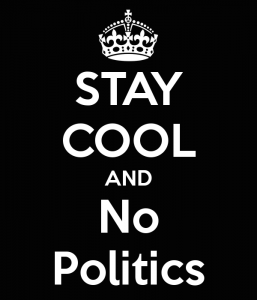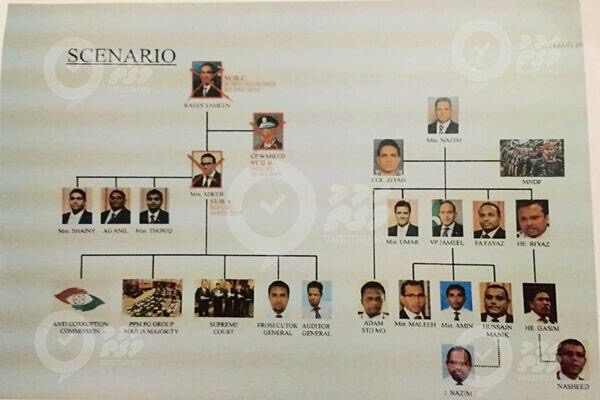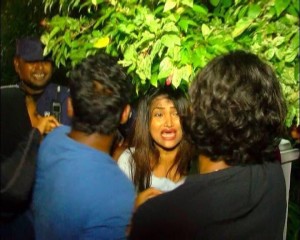What we talk about when we talk about Independence

by Shahindha Ismail
This July marks 50 years of independence for Maldives. It is truly fitting, in this sense, to light up the nation and celebrate the occasion with music, fireworks and fanfare. The government has spent millions to make it the most colourful and celebrated event in our small country.
Then why does it seem that all this is being rained upon? In sentiment as well as, alas, by Mother Nature? There has been so much resistance towards preparations for celebrations in the run up to the Independence Day. Is it not worthy of our leaders to stop and think for a moment? For our people are a freedom loving lot, a people who will sacrifice life and livelihood for it and, therefore, will undeniably celebrate it with fest and fervour.
However, contradictory sentiments have been expressed in abundance. Those of us who speak out have stood at public podiums and joined rallies. They have objected to this celebration of independence on TV, radio and print media. Others, especially the youth, have made their views crystal clear on social media. Parents have refused to let their children participate in school performances for the big event. The lights that have been spread across the city do not reach the homes of the people.
Why do we not rejoice in our fiftieth year of independence? Why is the air thick with negativity?
True, the Maldives was a British Protectorate for decades before they let us have our independence. Independence, as defined in the Oxford Advanced Learners Dictionary, freedom from political control by other countries. Yes we have achieved it. Or, even if we fought no battles for it, we have it nevertheless.
What, then, are we so unhappy about? What do we – those with the heavy hearts – talk about when we talk about independence? Do we have freedom from political control of our country?
Our beloved, unique language calls independence minivankan. It also means freedom in our language. Free from shackles, free from undue authority, free in thought, act and conscience. This minivankan is something we are yet to have.
The biggest freedom that I have seen us celebrate is the Constitution of 2008. We fought for it, sacrificed for it and we earned it. It came with such hope and enthusiasm! It made our hearts soar in flight and the whole nation, regardless of political alignment reverberated in joyous celebration. It brought with it the Chapter of Rights, the first ever in the history of Maldives. Written into the Chapter are all the freedoms our people have. To live, to earn, to raise our children, to speak our minds and to belong, to be part of this society that we call home, free from fear or persecution.
What has happened to it since that glorious 8th of August in 2008? The chapter has lain there, gathering dust. Of the 53 provisions guaranteeing fundamental rights in the Constitution, there is only one which the Supreme Court and Parliament have shown an interest in–and used at every opportunity: Article 16 – the provision that allows limitations on the rights provided in the Constitution.
The people have been completely removed from the political processes. They have become a mere ballot paper, nothing more, nothing less. The people are no more worthy of consultation in the direction that our nation should take. Let the people live in freedom and enjoy fully the fruits of this independence that we celebrate. Let there be inclusion, tolerance and respect. Let the people be part of this freedom.
Today would have been so different if the nation put our people forward. If we had let their say guide us, avoid blunders, speak from experience. How far behind they are. It feels as though sometimes ‘we’ refer to ‘some’. Why are all the lights and celebrations in the capital city? Where are the rest of the people? The keepers of the white beaches and blue waters? The nation expects us all to join the fireworks. Take a boat ride, pay for a bed and food and celebrate with ‘us’. This is not what the people want. They wish to be part of it, not an audience to it.
This nation can barely feed the people or care for them. People speculate on the expenditure on the lights and fountains alone. Why, when the average family can no longer bear the electricity bills as it is? Why spend the millions on festivities when the orphanage can hardly manage to feed the children there? The people do not agree with prioritising jubilee over necessity.
Our people live in a caged nation where simply expressing a wish to break free from it could have them imprisoned, or get destroyed or even be killed for trying it. This nation has lost too many lives, shed too much blood and tears with no recourse, no reconciliation and no accountability. Open the cages, and there shall be freedom. Have the courage to listen to the people. Their frustrations, their opinions and their two-cents-worth do matter, and they should not be punished for it. An equal say in our lives does not belittle anyone – why must it invoke such hatred? No! It is just an opinion, a freedom! Everyone is free to say it and to listen to it. We all should revel in what good can come out of it. The rest can be discarded.
This is just one view of what we talk about when we talk about independence. Or minivankan. What do the rest of our people feel? Has anyone tried to understand it?
Everything that we preach for must begin at home. No less for freedom and independence. Just because someone occupied our home for some years and then left it does not make it a free home if we are shackled inside of it.
About the author: Shahindha Ismail is the Executive Director at Maldivian Democracy Network. Shahindha has been working in fields related to human rights for ten years, and is the co-author of the MDN publication: Asaasee Haqquthakaai Minivankan [Fundamental Rights and Freedoms]. She has also contributed several articles and reports to human rights journals. She is a keen runner, and is married with one daughter.
Photo: Among thousands of fairy-light decorations put up to mark Independence Day
 Mohamed Nasheed, opposition leader and former President, was jailed for 13 years on charges of terrorism for an act that does not fit into any of the over 300 definitions of terrorism that currently exist across the world. One of the five co-defendants in the case, Moosa Jaleel, the current Defence Minister and Nasheed’s Chief of Staff at the time of the said act of ‘terrorism’, was cleared of the same charge yesterday. For Nasheed, the conviction came because he could not prove he was innocent. For Jaleel, the acquittal came because the prosecution could not prove he was guilty. Neither of the verdicts, according to the government, was political.
Mohamed Nasheed, opposition leader and former President, was jailed for 13 years on charges of terrorism for an act that does not fit into any of the over 300 definitions of terrorism that currently exist across the world. One of the five co-defendants in the case, Moosa Jaleel, the current Defence Minister and Nasheed’s Chief of Staff at the time of the said act of ‘terrorism’, was cleared of the same charge yesterday. For Nasheed, the conviction came because he could not prove he was innocent. For Jaleel, the acquittal came because the prosecution could not prove he was guilty. Neither of the verdicts, according to the government, was political. Nazim’s alleged Plan to Kill
Nazim’s alleged Plan to Kill The police have taken into custody close to 200 people in less than a month, and the courts have taken to imposing unconstitutional conditions on their release, demanding that they don’t protest for days, weeks or even months, if they want to remain free citizens. Those who defy the bans are locked up, deprived of basic rights and even abused psychologically and physically. Opposition parliamentarians are often the victims. Most recently, MP Ahmed Mahloof defied the conditional ban on protests only to see his wife being physically, and she alleges sexually, abused by a group of policemen as he was hauled away to detention without charge for an undefined length of time. ‘Don’t make this political’, says the government. ‘It’s rule of law’.
The police have taken into custody close to 200 people in less than a month, and the courts have taken to imposing unconstitutional conditions on their release, demanding that they don’t protest for days, weeks or even months, if they want to remain free citizens. Those who defy the bans are locked up, deprived of basic rights and even abused psychologically and physically. Opposition parliamentarians are often the victims. Most recently, MP Ahmed Mahloof defied the conditional ban on protests only to see his wife being physically, and she alleges sexually, abused by a group of policemen as he was hauled away to detention without charge for an undefined length of time. ‘Don’t make this political’, says the government. ‘It’s rule of law’.